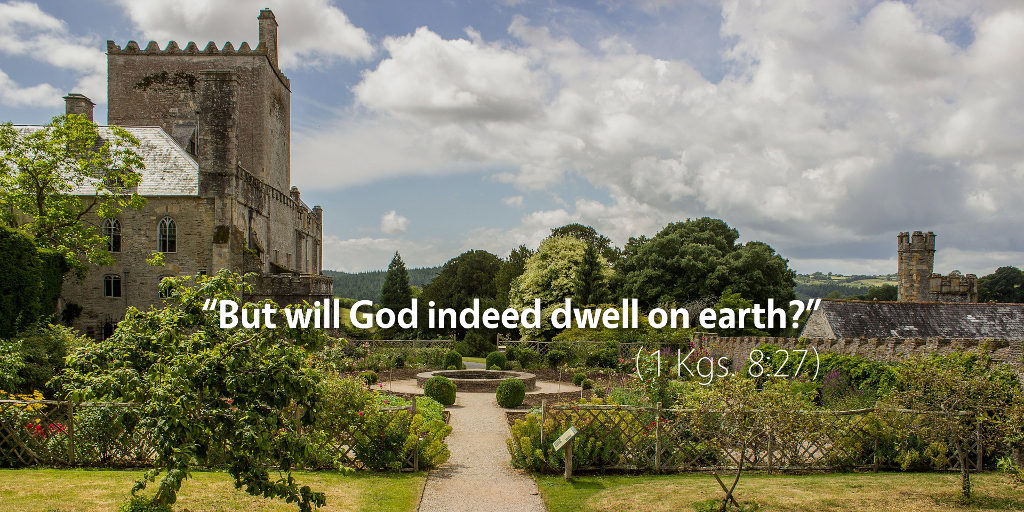Bible Readings for October 5th
1 Kings 8 | Ephesians 5 | Ezekiel 38 | Psalm 89
As Solomon prays to dedicate the temple in today’s reading from 1 Kings 8, his prayers provide important theological distinctions for understanding what it means for Yahweh to dwell in a physical location like this temple. First, Solomon is clear that no temple can contain Yahweh, the Creator of heaven and earth. He prays, “But will God indeed dwell on the earth? Behold, heaven and the highest heaven cannot contain you; how much less this house that I have built!” (1 Kgs. 8:27). To say that Yahweh would dwell among his people in the temple does not mean that this temple somehow contained or limited him.
Second, Solomon presses this point further with the eightfold repetition of the phrase “hear in heaven” (1 Kgs. 8:30, 32, 34, 36, 39, 43, 45, 49) after each petition that Solomon raises up. Yahweh would indeed dwell among his people on the earth in this temple, but Solomon has no delusions about the location of Yahweh’s true throne room—in the highest heavens. From there, Yahweh reigns as a king and a judge, sovereignly and providentially ruling over all of creation—but also hearing the prayers of even the weakest among his people.
Third, even though Solomon is exceedingly clear about the fact that Yahweh is not limited to his temple on earth, he nevertheless recognizes that Yahweh has indeed chosen to tie his name and his presence to this temple. This means that Yahweh has promised to respond to Israel’s prayers for relief from their enemies (1 Kgs. 8:33–34), from natural disasters (1 Kgs. 8:37–40), and for victory in battle (1 Kgs. 8:44–45). Even more, Yahweh has promised to hear the prayers of the foreigner who prays toward Yahweh’s temple (1 Kgs. 8:41–43) and to hear the prayers of Israel as they cry out to Yahweh for forgiveness from sin (1 Kgs. 8:31–32, 46–53).
This prayer is exceedingly important not only for understanding Yahweh’s relationship to his people through his temple but even more so for understanding Yahweh’s ultimate relationship to his people through his new temple, the body of the Lord Jesus Christ. In Jesus, Yahweh’s glory—the same glory that indwelt the temple so that the priests could not stand to minister (1 Kgs. 8:11)—indwelt human flesh. As a human being, Jesus uniquely bound himself to the limitations of humanity, but he also answered the prayers of those who have plead for forgiveness by offering himself up as a once-for-all sacrifice.
Today, all peoples—Jews and Gentiles, foreigners and children born to believers alike—may find salvation when they pray toward God’s temple built without hands, the Lord Jesus Christ. Through Christ, God dwells with his people—today by the Spirit of Jesus Christ in the church (Eph. 2:22), and forevermore in the New Jerusalem (Rev. 21:22).
Podcast: Play in new window | Download (5.2MB) | Embed
Subscribe: Apple Podcasts | RSS | More

Scripture quotations are from The Holy Bible, English Standard Version copyright © 2001 by Crossway Bibles, a division of Good News Publishers. Used by permission. All rights reserved.


